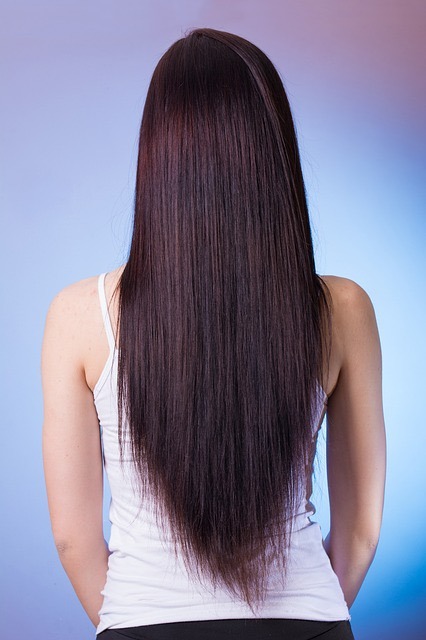Everyone knows that having a baby changes your body pretty dramatically. What they might not realize, though, is that your hair is not exempt from postpartum changes.
If you’ve noticed that your hair has been getting thinner now that you’ve delivered your baby, don’t panic. This is a normal part of your body balancing itself out after pregnancy.
Not sure how to deal with the changes your hair is going through? Keep reading.
Listed below are five easy postpartum tips that will make hair care a breeze for new moms.
Why Does Your Hair Change Post-Baby?
First things first, answering the question of why your hair changes after you’ve had a baby. In short, it has to do with the hormonal shifts that occur during pregnancy and after the baby has been born.
When you’re not pregnant, it’s normal to lose some hair (anywhere from 50-100 strands) each day.
During pregnancy, though, hormonal changes actually stop you from losing hair. You might have noticed that your hair was thicker or fuller while you were pregnant.
Once you’ve delivered your baby, you’ll experience a drop in estrogen levels. This drop, in turn, causes your hair to start falling out again. This phenomenon is known as telogen effluvium.
In the months following your delivery, you’ll lose more hair than you normally would. This is because you’re, in a sense, playing catch-up for all the hair that didn’t fall out while you were pregnant. According to majka.com, 60% of mamas experience hair loss after pregnancy.
Postpartum Hair Care Tips for New Moms
If you’re experiencing any of these common post-partum hair changes
1. Stay Hydrated
Staying hydrated is one of the most important things you can do to keep your hair healthy and manage postpartum shedding.
Drinking plenty of water helps you keep your hair hydrated. This, in turn, strengths it and reduces breakage and excess shedding. When you’re hydrated and your hair is strong, it will also grow faster.
Make an effort to drink at least half your body weight in ounces every day. If you don’t want to drink your water plain, try adding sliced fruit like cucumbers, lemons, or strawberries for some extra flavor. You can also drink hot herbal tea if you want something a little stronger that will still hydrate you.
2. Eat a Healthy Diet
In addition to drinking plenty of water, it’s important to make sure you’re eating a healthy, balanced diet, too. Make a special effort to consume plenty of micronutrients, especially vitamins and minerals that are known to promote hair growth.
The following are some of the best nutrients to incorporate into your postpartum meals:
- Vitamin A
- B-vitamins — especially biotin, which is known to promote strong, healthy hair
- Vitamin C
- Vitamin D
- Vitamin E
- Iron
- Zinc
If you have a hard time getting sufficient amounts of micronutrients from your food, you can also try taking a multivitamin or biotin supplements to fill in the gaps.
3. Don’t Overwash Your Hair
You also ought to make an effort not to overwash your hair. This typically isn’t a problem for women who have just had a baby — after all, you’re lucky if you get a shower in a couple times a week, let alone a full hair wash.
However, just in case you do get it in your head that washing your hair more often is a good idea, remember that it can cause your hair to become overly dry and brittle. This will lead to more breakage and thinning.
4. Don’t Overheat It
In the same way that overwashing your hair can be harmful, overheating it can cause problems, too. If you spend a lot of time blow-drying your hair and using a curling or straightening iron on it, your hair will be more brittle and prone to breakage and shedding.
In addition to avoiding heat from styling tools, it’s also important to avoid washing your hair with overly hot water. When you wash your hair with cold water, you close the hair cuticle. This helps moisture from your conditioner to stay in your hair.
5. Apply Oil Overnight
Finally, be sure to apply oil to the ends of your hair at night. This will help provide extra moisture, repair damage, and prevent split ends. Good oils to use overnight include:
- Coconut oil
- Olive oil
- Avocado oil
- Flaxseed oil
- Almond oil
Apply a small amount just to the ends, then wrap your up in a loose bun or tie it in a scarf so the oil doesn’t get on your pillow.
I’m a 20-something stay-at-home mother and wife. I have an amazing husband, a beautiful daughter, two loving dogs, and a lazy cat. I wouldn’t change my life for anything! I love to read, listen to music, cook and blog!


Speak Your Mind